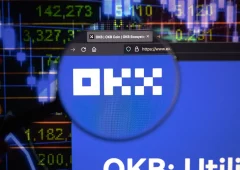Philippines Set to Launch New Stablecoin for International Payments
10.01.2025 22:00 1 min. read Alexander Stefanov
A new peso-backed stablecoin called PHPX is set to launch in the Philippines, developed with the aim of enhancing financial inclusion and streamlining cross-border payments.
The initiative, driven by a collaboration between several Philippine banks, will be based on the Hedera DLT network and is expected to launch between May and July.
UnionBank of the Philippines, along with other financial institutions such as Rizal Commercial Banking, Cantilan Bank, and Rural Bank of Guinobatan, is playing a key role in the creation of PHPX. The project intends to transform the remittance landscape by enabling real-time payments, providing a solution for Filipinos abroad to send money back home efficiently.
As the Philippines relies heavily on remittances—$40 billion were sent back to the country in 2024—the launch of PHPX aims to offer more than just a medium for domestic transactions. It will serve as a tool for seamless international payments and could potentially be used for paying school fees, directly from abroad, with immediate effect.
The stablecoin will also incorporate a multicurrency exchange system for liquidity, allowing users to swap PHPX with stablecoins pegged to US dollars, Singapore dollars, and Japanese yen. The Philippine project intends to ensure full compliance with global regulatory frameworks, leveraging Hedera’s permissioned network for secure, low-risk transactions.
-
1
Arthur Hayes Predicts Monster Altcoin Season: Here is Why
12.07.2025 10:46 1 min. read -
2
List of Altcoins Seeing Strong Outflows as Binance Signals Shift
13.07.2025 11:00 2 min. read -
3
6 Altcoins Gaining Attention After Market Rally, Says Analyst
15.07.2025 12:05 2 min. read -
4
Top Crypto Trends Dominating Discussions This Week
15.07.2025 17:30 2 min. read -
5
SOL Price Tests Key Level: Can a Weekly Close Above $170 Trigger a Bull Run?
12.07.2025 16:20 2 min. read
Ethereum Turns 10: Celebrating the Genesis Block That Changed Crypto Forever
On this day ten years ago—July 30, 2015—a revolutionary chapter in blockchain history began.
Standard Chartered: Ethereum Treasury Firms Now Form a Distinct Investment Class
A new report from Standard Chartered highlights that publicly traded companies holding Ethereum (ETH) as a treasury asset have emerged as a unique and fast-evolving asset class, distinct from traditional crypto vehicles such as ETFs or private funds.
Fartcoin Price Prediction: Trader Expects Big Bounce as FARTCOIN Nears $1
Fartcoin (FARTCOIN) has gone down by 17.3% in the past 24 hours and currently sits at $1.14. As the token approaches $1, one trader favors a bullish Fartcoin price prediction. DevKhabib, a pseudonymous trader whose X account is followed by nearly 46,000 users, says that he expects a big bounce off the $1 support after […]
Whale Activity Spikes as Smart Money Eyes Reversal Zones
Amid current market volatility, blockchain analytics firm Santiment has reported a notable rise in whale activity targeting a select group of altcoins.
-
1
Arthur Hayes Predicts Monster Altcoin Season: Here is Why
12.07.2025 10:46 1 min. read -
2
List of Altcoins Seeing Strong Outflows as Binance Signals Shift
13.07.2025 11:00 2 min. read -
3
6 Altcoins Gaining Attention After Market Rally, Says Analyst
15.07.2025 12:05 2 min. read -
4
Top Crypto Trends Dominating Discussions This Week
15.07.2025 17:30 2 min. read -
5
SOL Price Tests Key Level: Can a Weekly Close Above $170 Trigger a Bull Run?
12.07.2025 16:20 2 min. read


